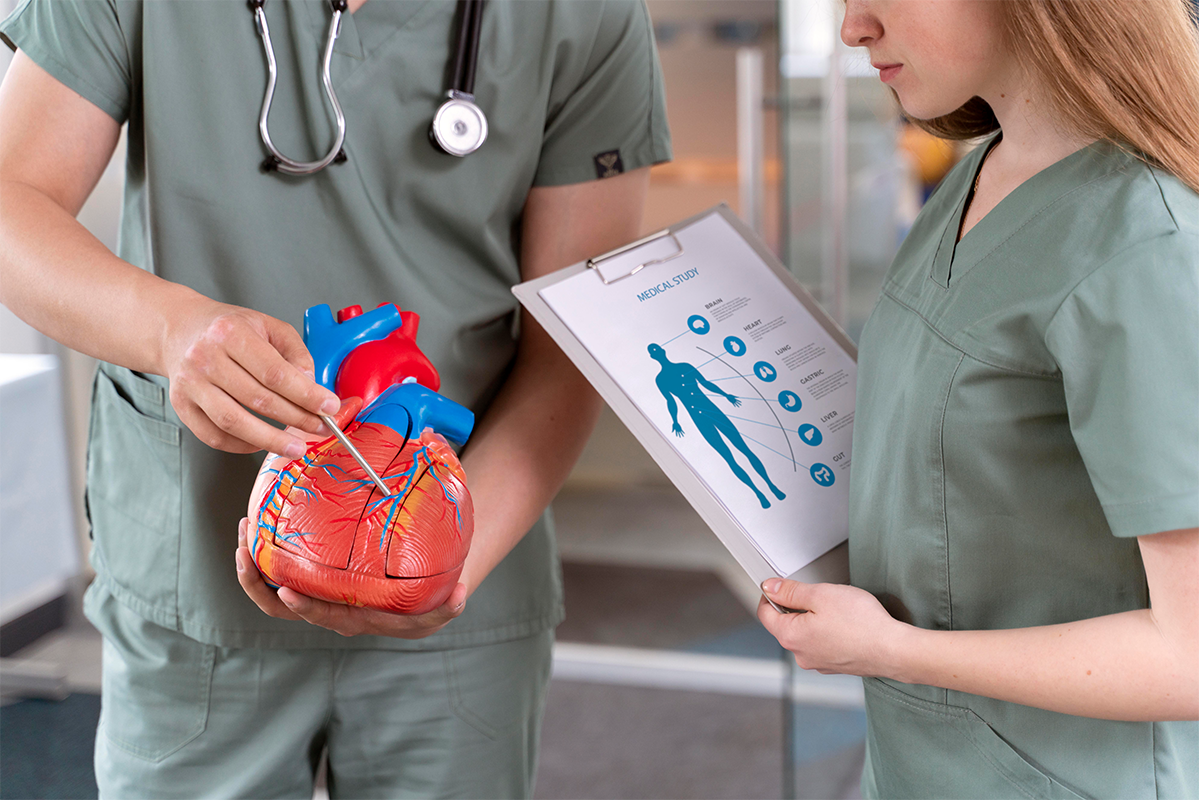 February 24, 2023
February 24, 2023
Have you ever wondered why your heart beats? It's because it's the hardest working muscle in your body! But what if your heart didn't develop properly before you were born? That's what happens to millions of people worldwide who live with Congenital Heart Disease (CHD).
CHD is a condition that affects the structure and function of the heart and is the most common birth defect. It can range from minor abnormalities to life-threatening conditions, making it challenging for patients and their families.
But don't worry; there is hope! With early diagnosis and proper medical care, people with CHD can live healthy and fulfilling lives. In this blog, we'll deeply dive into CHD, exploring what it is, how it affects the body, and what can be done to diagnose and treat it. Let's get started.
Q: What is congenital heart disease?
Congenital heart disease (CHD) is a term used to describe a range of heart abnormalities present at birth. These can include defects in the heart's walls, valves, or blood vessels, which can vary in complication. CHD is the most common birth defect, affecting around 1 in every 100 babies.
Q: What causes congenital heart disease?
The exact cause of CHD is not always known, but it is thought to be a combination of genetic and environmental factors. Some genetic conditions, such as Down syndrome, can increase the risk of CHD. Exposure to certain medications, chemicals, or viruses during pregnancy can also increase the risk.
Q: Are there different types of congenital heart disease
Yes, there are many different types of CHD, ranging from mild to severe. Some common types include:
Q. What are the symptoms of CHD?
The symptoms of congenital heart disease (CHD) vary depending on the specific type and severity of the condition. In some cases, infants with CHD may show no symptoms at all. In other cases, symptoms may be present at birth or develop over time
Common symptoms of CHD can include:
It's important to note that not all cases of CHD present with symptoms. Sometimes, CHD may be discovered during routine prenatal or newborn screening tests.
Q: How is congenital heart disease diagnosed?
Congenital heart disease can be diagnosed in several ways.
During pregnancy, fetal echocardiography (an ultrasound of the baby's heart) can be used to detect CHD.
If CHD is suspected after birth, the doctor may perform a physical exam and order diagnostic tests such as:
In some cases, genetic testing may also be recommended to look for specific genetic mutations or chromosomal abnormalities that can increase the risk of CHD.
Early diagnosis is important so that treatment can be started as soon as possible to improve outcomes.
Q: How is congenital heart disease treated
Treatment for congenital heart disease depends on the specific type and severity of the condition. In some cases, no treatment may be necessary, while in other cases, surgery or other procedures may be required. Some common treatments for congenital heart disease include
Sometimes, a combination of treatments may be used to manage CHD. Individuals with CHD must work closely with their healthcare providers to develop an individualized treatment plan based on their needs and medical history.
Q: Can people with congenital heart disease live a normal
People with congenital heart disease can live a normal life with appropriate treatment and management.
Many people with CHD can participate in physical activities, attend school and work, and have families. However, the ability to live a normal life may depend on the type and severity of the condition, as well as the individual's response to treatment. With advancements in medical technology and treatment options, the life expectancy of people with CHD has significantly improved.
Many individuals with CHD can live well into adulthood and enjoy a good quality of life. Regular check-ups and monitoring are also important to detect any changes in the condition and to adjust treatment as needed.
Some people with more complex forms of CHD may require ongoing medical care or special accommodations to manage their condition. For example, individuals with a pacemaker may need to avoid certain types of electromagnetic radiation, and those with cyanotic heart disease may need to avoid high altitudes or extreme temperatures.
Individuals with CHD need to stay informed about their condition, work closely with their healthcare providers, and take steps to manage their health to ensure the best possible outcomes.
Q: Can congenital heart disease be prevented?
In most cases, congenital heart disease cannot be prevented. The causes of CHD are not completely understood, and in many cases, the condition develops due to a combination of genetic and environmental factors that cannot be controlled.
However, some steps can be taken to reduce the risk of certain types of CHD. For example:
It is important to note that in many cases, CHD develops for unknown reasons, and even with proper care during pregnancy, it may not be possible to prevent the condition. However, early diagnosis and proper management can improve outcomes and quality of life for individuals with CHD.
Q: What support is available for families affected by congenital heart disease?
Families affected by congenital heart disease (CHD) may have a wide range of emotional, financial, and practical needs. Fortunately, many sources of support are available to help families cope with the challenges of CHD and ensure that their loved ones receive the best possible care. Some examples of support resources include:
Appropriate medical treatment and care are crucial to avoid any associated medical complications. To book an appointment, contact us at +91-9540 114 114
2025 © SSB Heart and Multispecialty Hospital.